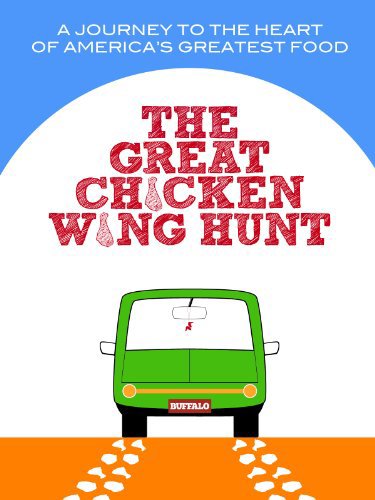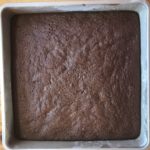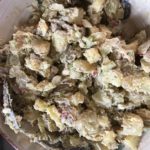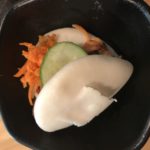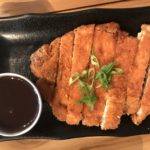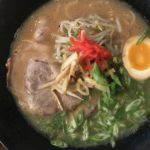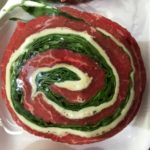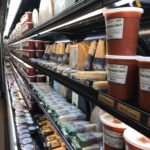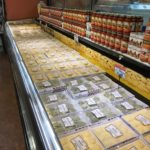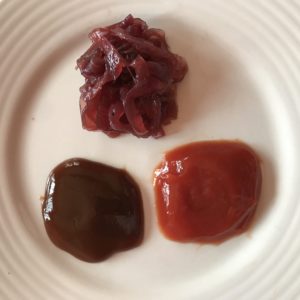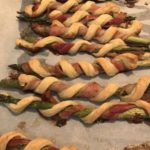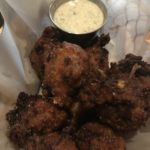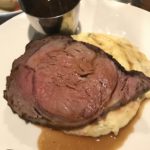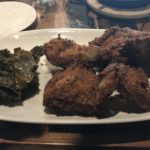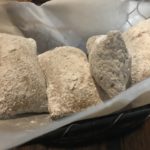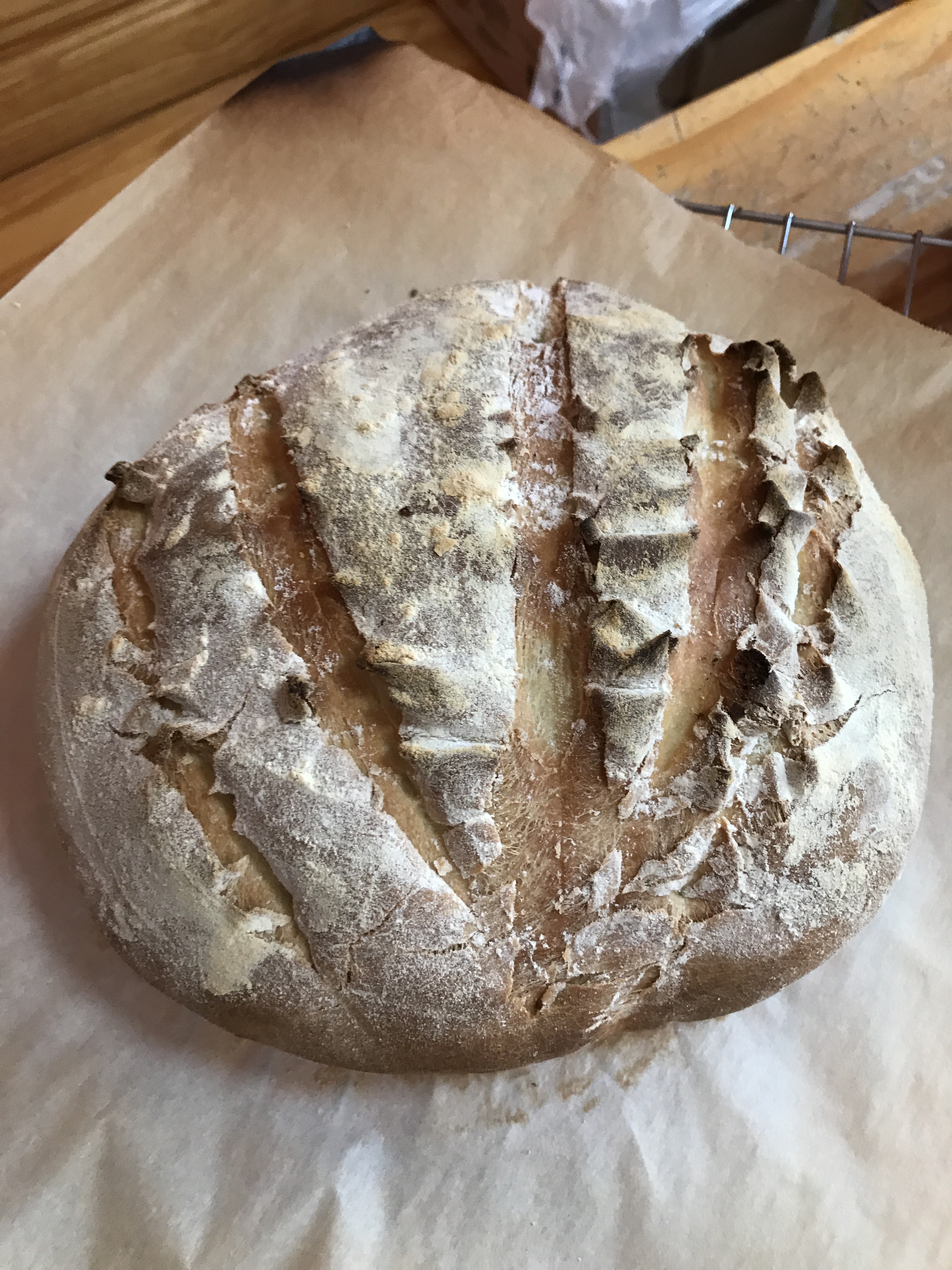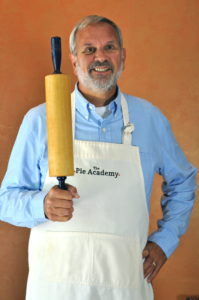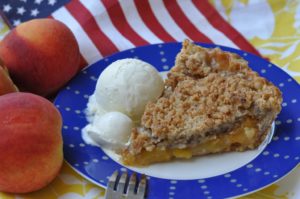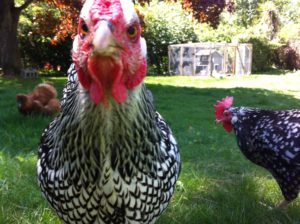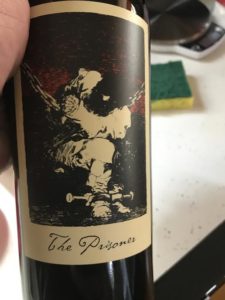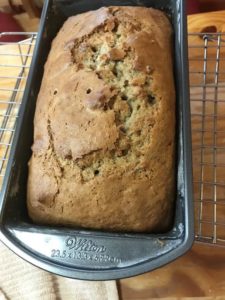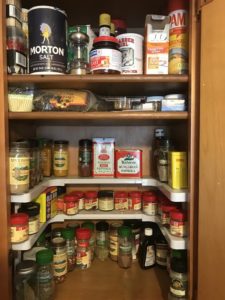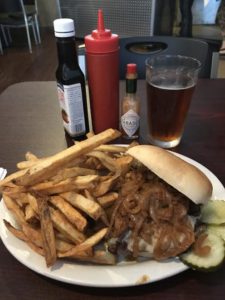 Episode 022- What makes a great hamburger? It’s such a personal choice but, regardless of your preferences, there are specific things that you take your burger from “meh” to fabulous.
Episode 022- What makes a great hamburger? It’s such a personal choice but, regardless of your preferences, there are specific things that you take your burger from “meh” to fabulous.
On today’s show, you’ll learn about those things. We’ll also explore some ideas from fellow burger lovers. Their suggestions might make you stop and say, “Hey, I want to try that!”
One of my favorite burgers ever is from a restaurant called The Good Steer on Long Island. It’s called “The Cheese Dream” –now referred to as the “Classic Cheese Dream Supreme” on their menu. This hamburger is bathed in a velvety cheese sauce, tomato, bacon, and crowned with perfectly fried onion rings. I’ve tried to replicate it at home, to no avail. My only recourse is to get a Cheese Dream whenever I am back on Long Island. Usually, I will stop at the Good Steer before I see my family or friends. If you’ve ever had The Cheese Dream, you’d know why.
There are many ways to enjoy a burger. How one has it depends on many variables including mood, location, company, who’s doing the cooking, and what’s available. I don’t eat a burger exactly the same way every single time. Nor should you; explore the many ways to achieve hamburger enlightenment!
Peanut Butter? We saw this at a restaurant not too long ago. While intrigued, I went with something else. Have you had or would you put peanut butter on your hamburger?
Today, we’ll cover primarily beef hamburgers. I know, I know. There are some very good veggie burgers, turkey burgers, lamb burgers, etc. For the purposes of simplicity of this particular episode, let’s stipulate that we’re talking about beef with the understanding that some of these hints, tricks, and ideas could transfer over to other burgers made of something other than beef.
The Way That You Cook It
Some people prefer small burgers, I do not. I like a big burger that has a crust on the outside and moist and juicy on the inside. In my opinion, the best way to do that is on a very hot cast iron pan or griddle.
Alternatively, you can do this outside on the grill and I like the flavor that charcoal imparts on a burger. However, when at home and since we are a small family, I’m not going to do all that work firing up the Weber for three burgers. All the more reason I should get a small hibachi grill, I know.
The temperature of the burger is important for the taste and consistency. Some people go by looks, others use a thermometer to get an accurate reading. Remember, your burger will continue to cook when you take it off the heat. But here are the temps:
Rare 120 °F
Medium Rare 130 °F
Medium 140 °F
Medium Well 150 °F
Well Done 160 °F
For food safety, the USDA has guidelines for safe minimum temperature of ground meat which they say is 160 °F. For me, Well-Done burgers are unpalatable. I am usually a Rare or Medium Rare guy, depending on my mood.
Disclaimer: The temperature of how you eat your burger is your own business and only you take responsibility for what you put in your body. Don’t eat anything you don’t want to eat.
You Invited me Over for Burgers? Why are you Serving Meatballs?
Has this happened to you? You start with patties and then through the process of cooking the meat transforms into a meatball? If you have this problem, try this: After you make the patty, make a divot in the center of it with your thumb. Don’t squish the burger into submission, just make a gradual indentation.
What You Put In It
The quality of the beef is important; the taste and juiciness of your burger depends on it. If you buy supermarket ground beef it’s very likely that you’re going to get lower quality ground beef than if you bought a slab of chuck and ground it yourself. That’s just a fact with industrialized meat. Chances are they are not as discerning about what parts of the cow they are throwing into the mix as you are.
That said, not everyone has the time or patience to start grinding meat at home. So go to a butcher you trust (whether they be at a supermarket or not) and buy the ground beef from them. Another option is to buy the cut of meat that you want and have them grind it for you. It’s worth the extra money!
The amount of fat is important too. The more fat, the tastier and more moist the hamburger will be. Most things that I’ve read suggest 80/20 or 85/15 beef- to-fat ratio. How you get a great tasting burger with anything leaner is beyond me.
Recommendations for the type of meat center around chuck, that’s what I use. However, I’ve used ground pork, chopped up pancetta, or regular bacon if I have it in the fridge. I had recommendations of adding tasso, brisket, or short rib meat into the mix too.
Some people suggest adding things such as salt, pepper, Dash seasoning, Worcestershire sauce, or other types of sauces into the meat before forming patties. I do not. When you start doing this, it is a slippery slope and then you fall so very close to the territory of meatballs and meatloaf. Part of what makes a burger a burger, is its simplicity. I usually just put salt and pepper on the outside after I make the patties. I add sauces and other accouterments when I’m building the burger.
To combat dried out burgers, there are suggestions to put a small ice cube in the patty to keep it moist.
Another way to do that is to put a frozen chunk of cold butter in the center. This simultaneously imparts fat for moisture and flavor into the meat. (Side Note: On my bucket list is to eat the “21” burger at 21 Club in New York City which famously features herb butter in its center. Here is the recipe for that.)
What You Put On Top of It
But first, this note on construction: I’m of the mind that when the effort of eating something offsets its taste, I will pass. I see this at restaurants. In a effort for them to be unique, hip, buzz-worthy, or any other motivation not predicated on taste, they will create monstrous concoctions. If you have so many burger patties, toppings, sauces, and other stuff on your sandwich that you need an assistant to help you cram the thing into your mouth, I would respectfully suggest that you’re doing it incorrectly. You shouldn’t need a foot long skewer impaling your burger to get it to your table. Further, it’s impossible for the human tongue to taste 34 ingredients all at one time. Less is more!
Salt, Spices, and Herbs
As I mentioned, it’s Kosher salt and black pepper on the outside for me. Many folks add other things including garlic salt, spice rubs, dried herbs to the outside a burger before cooking it. If that’s your preference, okay. I would offer the caveat that when some of these herbs and spices hit an intense heat or open flame, they can quickly go from tasty to bitter and off-tasting.
Sauce, Vegetables, Cheese, and “Other” Toppings
Sauce– When I was growing up on Long Island, the joke was that you’d never want to live upstate because they put mustard on their burgers. Despite this dire warning, I have lived almost half of my life in upstate New York though I do avoid mustard on my burger.
My preference for sauce is ketchup (preferably Heinz), A1 Sauce, and/ or Tabasco Sauce. Some like mayonnaise, and I see the appeal, but I think the danger of adding yet another sauce onto the burger outweighs the taste. I use the word “danger” because the sauce with the (hopefully) juicy burger will diminish the integrity of the bread holding the thing together. More on that later.
Also, too many sauces also adds to the likelihood that the burger might come slipping out the other side when you try to bite into it. For this reason, if I add a sauce, I will remove a sauce from my predetermined preferences.
I see the benefit of using sriracha as it adds both heat and tomatoey/garlicky goodness. It’s an added dimension of flavors that I enjoy and, if its around, I will use it instead of ketchup. The same goes with barbecue sauce and HP Sauce.
Friends recommend Thousand Island dressing which reminds me too much of McDonald’s “special sauce” so I will stay away from that. However, recommendations to try pesto aioli and even cocktail sauce intrigue me.
The best additions to a burger add texture, moisture, and taste simultaneously. For these reasons, I like the suggestions of chili and guacamole. With a smear of either on your burger, you can get a lot accomplished! So too, I never thought to put cole slaw on a burger!
Cheese- Yes, I know when you put cheese on a hamburger, it transforms into a cheeseburger. My more litigious friends can choose to argue the nuance of that, while I sit down and eat while their meal gets cold.
American or Cheddar seems to be the standard. Burger-loving friends have suggested pepper-jack, blue cheese (and Gorgonzola). I prefer Swiss cheese or provolone.
Vegetables- I am not convinced that tomato and lettuce brings anything to the hamburger table either in taste or texture. However, it was very popular with the folks who opined.
I sometimes like raw onion because of the crunch and sharp taste. I also like pickles for the same reason. Here we had some great suggestions: Piccalilli fits the bill. It’s a spicy pickled vegetable relish with its origins in India. Similar to that would be chopped giardiniera or pickled jalapenos. Onion confit adds a sweet and sour aspect that I had not thought about, but will be trying.
Speaking of onions, like many, I love grilled onions on a burger. It adds a bit of sweetness and goes very well with earthy goodness of mushrooms, which I also like.
Other Toppings
Bacon- Mmmmmmmm. Bacon. Enough said.
Fried Egg- The first time that I had an egg on a burger was in the 1970s at a restaurant called Brill’s. I ordered it for the novelty and thought nothing more of it until a few years ago when it seemed that every restaurant was putting a fried egg on everything. As an adult with a more thoughtful approach to eating, I appreciate the added moisture and taste the oozing yolk created.
Pineapple- This was suggested by one of my healthier eating friends. I do love pineapple but never thought to add it to a burger.
Burger Trivia: In an effort to get more people to eat at its restaurants during Lent when observant Catholics did not eat meat on Friday, McDonald’s fielded a Hula Burger– grilled pineapple and cheese served on a bun. Ray Kroc was convinced it was a winner. It wasn’t. It turned out the Filet o’ Fish was much more popular.
More Other Toppings
Bill Chen offered this unique suggestion, something that he makes when tailgating that he calls “a hamdog.” To make it, slice a hot dog long ways and put it on top of a burger with crushed potato chips. Given the drinking that traditionally goes on during tailgating, this might make sense.
Cheetos were also suggested. This adds the cheese flavor and crunch to the canvas and I am not necessarily against adding these more low brow foods. Adding junk food is something that I’ve done before though never on a hamburger. We have a family sandwich that we eat on vacation called a Doritos Special, which is not as off-putting as it sounds.
What You Put It On
Let’s be clear, some type of bread must be used. If not, then your hamburger becomes a “hamburger steak.” If you want to eat it this way, that’s fine. For me, part of the joy of eating a hamburger is the two-fisted experience. Get the bread!
I’ve been to some restaurants that serve their burgers wrapped in lettuce leaves as a nod to the gluten free/healthy option. I’ve had a few burgers this way when I’ve been dieting. I’m not a fan of this. Aside from providing a handle to eat the meat, the purpose of the bread is to absorb the mingling juices and sauces. With nothing to the all-important job of absorbing, the result is a slippery mess. Keeping my shirt clean during a meal is tough enough, I don’t need this added difficulty in my life.
Aside from taste, the most important thing in a hamburger is for the bread to keep integrity throughout the whole eating process. If it is not sturdy enough for the job it’s out of consideration. However, it can’t be so sturdy that you can’t easily take a bite without winding up in the “dog with a sock” scenario.
I don’t like traditional supermarket burger rolls because they are too soft. They have neither flavor nor texture. They are much more likely to fall apart with juicier burgers. When you start adding sauces and toppings you are adding to that probability of a gloppy mess in your hand by several orders of magnitude.
I join many many who opined with a preference of kaiser rolls or ciabatta rolls. I also enjoy English muffins for this reason. Like ciabatta, English muffins have an an abundance of nooks and crannies to capture the sauces and juices. The challenge is that it’s difficult to find them large enough to support the size of burger that I prefer. With the regular-sized English muffin, you wind up with too much of the burger exposed to the elements. A hamburger is best when there is bread in every bite.
Size is also the reason why I usually shy away from Hawaiian rolls, which are the color and texture of a potato roll but sweeter. If you haven’t seen them, they’re about the size of a Parker House roll–again, a lot of a larger burger is exposed. However, just this week I just saw on Facebook a way around the size issue. Because they come attached in the bag when you buy them, you can break them into groups of four. Slice it horizontally and it makes them the perfect bread for a good-sized burger.
Many who weighed-in like the softer rolls. If that’s more to your liking, I encourage you to try Hawaiian rolls, potato rolls, or brioche rolls. They’re a little too soft for me, as I prefer a crusty roll for my hamburger. Now, that doesn’t mean that I’m not going reject a hamburger on a softer roll. That’s just crazy talk!
I am agnostic on the issue of buttering and/or toasting the roll. No doubt it adds flavor and texture, regardless of the roll. Sometimes I toast my rolls. When making burgers at home, I never have buttered the rolls. That doesn’t mean I won’t start.
The one thing I’ve learned is that the things that I enjoy over time change. There are some constants–such as having bread with integrity and using the best quality beef that you can afford. Life is too short to skimp on simple joys.
But when it comes to burgers, try some of these things out! There’s a world to explore in hamburger customization. Things that I like today, I may not like in the future, and that’s okay. Except when it comes to the Cheese Dream, I’ll always love the Cheese Dream.
The Guys and Food newsletter gives you delicious recipes, helpful kitchen hacks, and other things that any food guy will find useful. Some of the things in the newsletter will be exclusive, which means it won’t make it on the podcast or blog. Sign up for the newsletter, you’ll be glad that you did! (Don’t worry, your contact information will never be sold or made available to any other person or organization.)
Remember to subscribe to the Guys and Food podcast in Apple Podcasts, Stitcher, GooglePlay, and Tunein Radio. In social media you can find us on Facebook and Twitter!
Please feel free to reach out with your questions or comments. You can do that by clicking on the Contact button, email me at gabe@ guysandfood.com, or call the listener line at 716-427-GUYS (4897).

